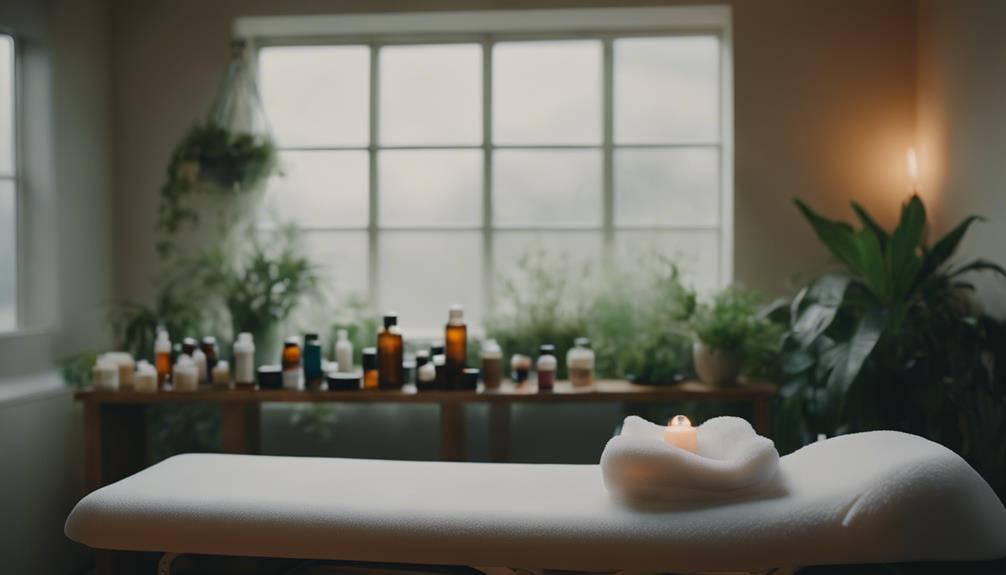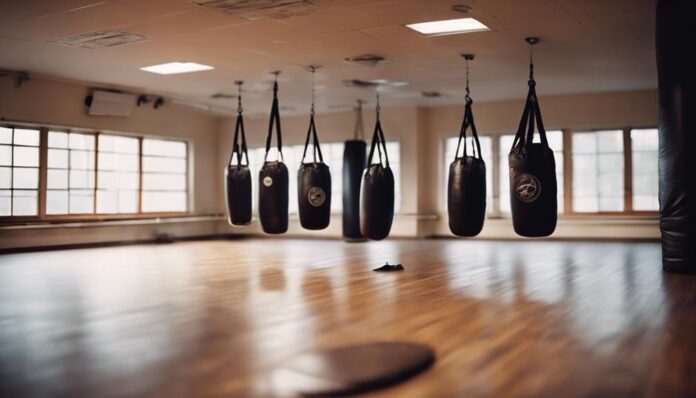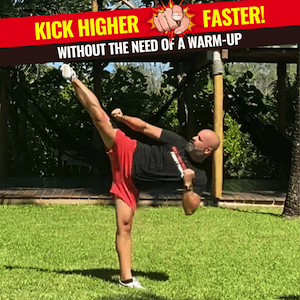As a martial artist over 40, you're shifting focus from extreme competitiveness to long-term durability. To achieve this, prioritize conditioning for injury prevention through a proper diet, core strengthening, and low-impact training. Incorporate styles like Aikido or Kempo Karate to minimize injury risk, and focus on technique development over high-impact movements. Manage your intensity, listen to your body, and balance training with recovery time. Nutrition plays an essential role, so emphasize whole foods, adequate protein intake, and hydration. By adopting these strategies, you'll be better equipped to navigate the unique challenges of martial arts training at an older age, and discover more ways to optimize your approach.
Conditioning for Injury Prevention
When it comes to conditioning for injury prevention as a martial artist over 40, it's vital to start with a solid foundation. This foundation includes a proper diet that provides your body with the necessary nutrients to support your training. A well-balanced diet will help you maintain a healthy weight, reduce inflammation, and support joint health.
In addition to a proper diet, core strengthening exercises are fundamental for injury prevention. Your core provides stability and support to your joints, particularly your knees and back, which are more susceptible to injury with age. Engage in exercises that target your core, such as planks, crunches, and leg raises.
Low-impact training options, such as Aikido or Kempo Karate, can also help reduce the risk of injury. These styles focus on technique and strategy over high-impact movements, allowing you to build skills safely while reducing the strain on your body.
Effective Warmup and Recovery Techniques
As a martial artist over 40, your warmup routine is your first line of defense against injury and a vital component of your training regimen. A well-structured warmup routine prepares your muscles and joints for physical activity, reducing the risk of injury and improving flexibility.
It's important to incorporate general movements like light jogging, shoulder circles, and squats into your warmup routine to get your body ready for training.
In addition to a warmup routine, stretching is also significant for martial artists over 40. Here are some key points to keep in mind:
- Stretch for 5-10 minutes before and after workouts to enhance flexibility and aid in muscle recovery.
- Focus on cooling down with static stretches after sessions to alleviate muscle tightness and promote recovery.
- Incorporate yoga or dedicated stretching workouts into your routine to improve overall flexibility and muscle recovery.
- Listen to your body and gradually shift from intense activities to structured warmup routines to avoid putting excessive strain on your muscles and joints.
Age-Appropriate Training Strategies
You've established a solid foundation with a well-structured warmup routine and a focus on recovery techniques. Now it's time to incorporate age-appropriate training strategies into your martial arts practice. This is an important aspect of your training, as it allows you to maintain physical activity while minimizing the risk of injury.
When designing your training program, consider the following guidelines:
| Training Aspect | Age-Appropriate Approach |
|---|---|
| Intensity | Gradually increase intensity to avoid sudden stress on joints |
| Style | Incorporate low-impact styles, such as Aikido or Kempo Karate, to reduce joint stress |
| Technique | Prioritize proper technique over power to prevent long-term damage |
| Exercise modification | Listen to your body and modify exercises based on individual limits and injuries |
Nutrition for Optimal Performance
Proper nutrition plays a vital role in supporting your martial arts training over 40, greatly influencing your energy levels and inflammation control. As you age, your body undergoes natural changes that can affect your physical performance, making nutrition even more essential.
Focus on whole, unprocessed foods such as vegetables, lean meats, and healthy fats to support muscle recovery and enhance your performance.
To optimize your nutrition, consider the following:
- Prioritize whole foods like vegetables, fruits, whole grains, lean meats, and healthy fats to support muscle recovery and performance.
- Make certain you're getting adequate protein intake, around 1.2 to 2.0 grams of protein per kilogram of body weight, to support muscle maintenance and repair.
- Stay hydrated by drinking plenty of water throughout the day, as older adults may require more conscious hydration strategies due to decreased thirst sensation with age.
- Include antioxidant-rich foods in your diet to help combat oxidative stress and support joint health, which is particularly important for high-impact martial arts training.
Managing Injuries and Recovery Time

Your body's resilience to injury is its greatest asset in martial arts training, but it's also the first thing to decline with age. As you get older, recovery time increases, and injuries take longer to heal.
It's crucial to listen to your body and modify your exercises if you're experiencing nagging injuries. Ignoring these signals can lead to further damage and prolonged recovery time.
Proper nutrition plays a significant role in managing inflammation and supporting recovery from injuries. Focus on whole foods to help your body heal faster.
Regular stretching and cooldown routines after workouts can also aid in muscle recovery and flexibility, reducing the risk of injury.
Incorporating low-impact training options, such as Aikido or Jiu Jitsu at reduced resistance, can help manage injuries while still building skills and maintaining fitness.
The important thing is to find a balance between training and recovery. Don't push yourself too hard, as this can lead to more severe injuries.
In Summary
As you continue your martial arts journey over 40, prioritize injury prevention and recovery. Implement a conditioning routine that strengthens your core and improves flexibility. Warm up and cool down effectively, and adjust your training to suit your age and abilities. Fuel your body with a balanced diet, and don't push through pain – rest and recover when needed. By being proactive, you'll extend your martial arts career and maintain overall well-being.



